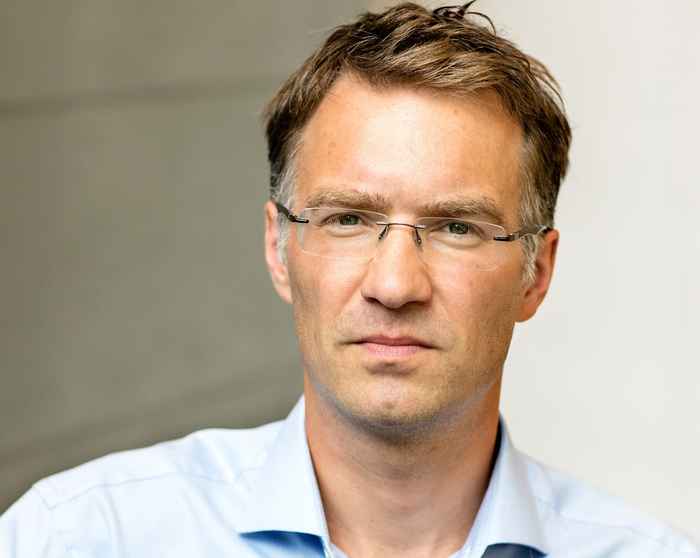‘I want to inspire my students for behavioural economics’

From macro to micro
‘My interest in economics started very young. I was always asking myself different kinds of macro-economic questions. For example: what is the
reason that some people are poor and others rich? And what can we do about poverty? I discovered that these questions are very hard to answer, but you could research small components of these questions by doing experiments. That's how my interest in behavioural economics was born.’
Primarily individual behaviour piqued my interest. Gradually I turned more and more towards 'micro topics. Now I have an interest in attention. This is a subject that wasn’t always included in economic research. But it has an impact on the way you see the world, and hence on what you buy or how you vote.
More socially responsible consumption
‘Before I knew it, my interest in behavioural economics was born. In 2017 the Dutch Research Council (NWO) awarded me a Vidi grant for my research project on Selective Attention and Economic Decisions. I try to unravel the interplay between psychological stimuli and economic decision-making. What do people pay attention to when they are making economic choices? Especially when it comes to socially responsible impact. I hope that investigating how to present information so that it has the most impact will result in more sustainable consumption.’

What you can expect from my lectures? Small group experiments, inspirational guest speakers or presentation assignments. My way of teaching is interactive and challenging.
Lecturer of the Year 2021
‘In addition to my research career, I teach master’s students and I’m a master’s Thesis supervisor. My teaching career started in 2008, at the European University Institute. But I have been a lecturer at the Amsterdam School of Economics since 2014 and in 2021 I was voted ‘Lecturer of the year’ in the MSc. Economics. Something I’m very proud of. I see teaching as something you do together. As a lecturer and thesis supervisor, I am always open to questions. It makes me happy when a student asks for more information about a theory or career advice. I will always try to help you where I can.’
Interactive lectures
‘What you can expect from my lectures? Small group experiments, inspirational guest speakers or presentation assignments. My way of teaching is interactive and challenging. I always aim to seek a connection between relevant questions and economic theory. When it comes to tax models for example, you can link this to all kinds of discussions around tax. For instance, how much tax can we levy on the richest? My experience is that it works best to make theory more concrete.'
Advice for new students
‘It might be a cliché, but my advice to new Master students is: do what you find interesting and what gives you energy. Life is too short to do things you don't like. You just don’t know what the future brings. Alongside my MSc Economics I did two extra Master tracks, Journalism and Philosophy. It brought me to where I am now. You don’t have to regret your time doing something you enjoy. Oh, and keep asking questions during the lectures and of course come prepared.’
Strategic sport
‘What I love to do in my spare time? Competitive cycling. Most people think that it is just riding on a bike and seeing who is the fastest. But it is more than that. For me it is mindful to be outside in nature. Away from the crowds. And in addition, it is a strategic sport. When you ride in front, you suffer from air resistance. So, everyone wants to race behind someone. How do you ensure that someone else does as much work as possible, and you as little as possible? Interesting right? This could be a nice thesis subject for one of my students if they are interested.’